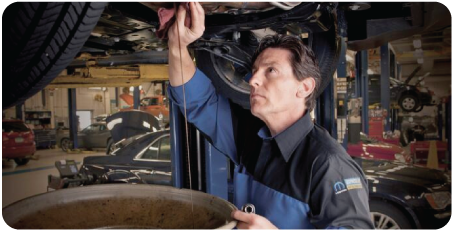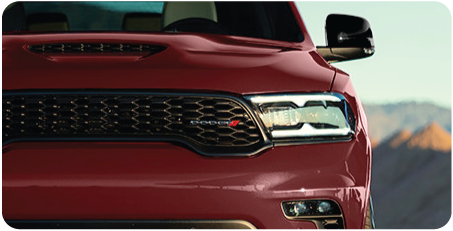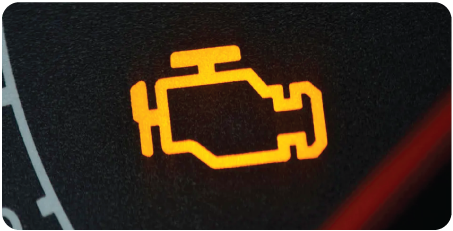Tire Store
Looking for a new set of winter tires? We are your one-stop shop for tires in Mississauga! We carry all major tire brands for most makes and models. Use our no-obligation tool to compare and select the best winter tires for your vehicle, and take advantage of our limited-time offer of "Buy 3 Tires, Get 4th Tire Free" for select tire sets!
| Days | Hours |
| Monday | 7:30AM to 5:00PM |
| Tuesday | 7:30AM to 5:00PM |
| Wednesday | 7:30AM to 5:00PM |
| Thursday | 7:30AM to 5:00PM |
| Friday | 7:30AM to 5:00PM |
| Saturday | 8:00AM to 1:00PM |
| Sunday | Closed |
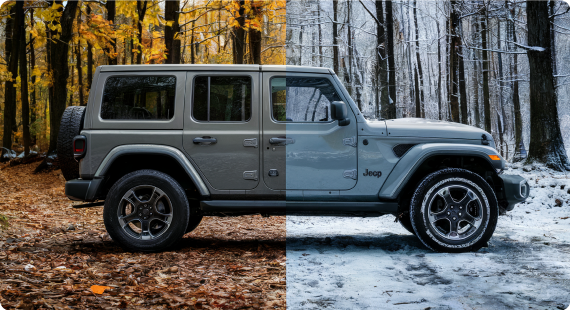
At Cooksville Dodge Chrysler Jeep RAM you will find what you’re looking for among our huge selection of tires. Simply choose a year and we’ll help narrow down the options until we’ve determined precisely which model is the one that you’re after. If you require some information or want to speak with a dedicated tire expert simply contact us and we’ll be glad to walk you through the process and determine, together, which tire will be the best for your particular vehicle.
We have a full range of brand name tires, including Goodyear, Bridgestone, Continental, Pirelli, Firestone, Uniroyal, Dunlop, BF Goodrich, Michelin, General Tire and more.
Not sure if you need new tires yet? Contact us and a Cooksville Dodge Chrysler Jeep RAM service team member can help you determine the best option. It's important to monitor your tires to ensure you get the best performance and gas mileage out of your vehicle.
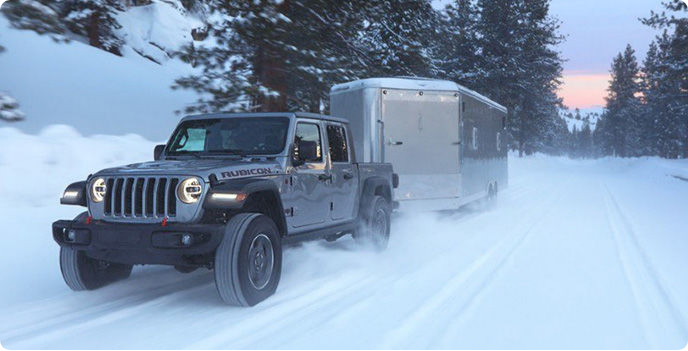
Winter Tires
More than half of Canadian drivers install winter tires on their cars. Winter tires are not only useful in snowy conditions, but also perform better than all-season tires at temperatures below 7°C. Simply put, winter tires are made to maintain superior traction in cold weather, as well as icy, snowy, or slushy roads.
Winter tires use special compounds and are able to remain softer, allowing tires to handle the road better in extremely cold conditions. This feature, along with deeper tread depths, and extra cuts and tread blocks, are what make winter tires perfect for extreme cold.
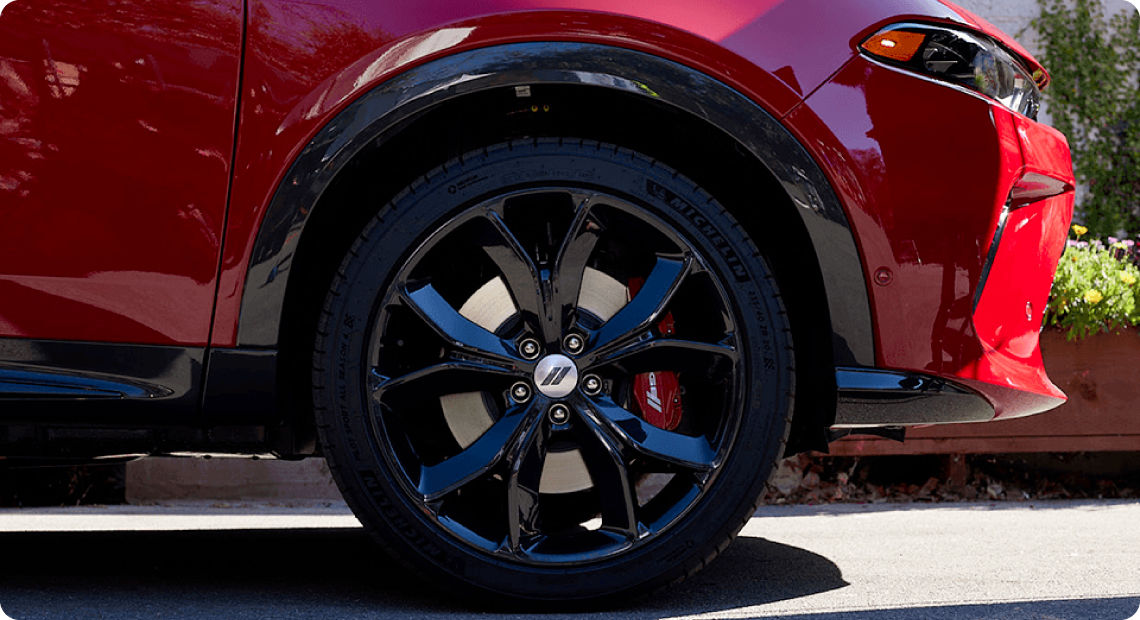
All Season Tires
All-season tires are designed to provide reliable performance throughout the year. They offer a balanced blend of handling, traction, and comfort in a wide range of weather conditions, making them an ideal choice for drivers who prefer the convenience of a single set of tires. Whether you're driving in mild winter conditions or on hot summer roads, all-season tires deliver dependable grip and stability.
All-season tires are engineered to handle warm and cool weather, making them perfect for moderate climates. They offer the convenience of eliminating the need for seasonal tire changes while maintaining solid traction in rain, light snow, and dry conditions. With a balanced design, all-season tires combine the best features of summer and winter tires, providing a smooth and comfortable ride.
Why choose us?
With many years of experience in the auto industry behind us, Cooksville Dodge Chrysler Jeep RAM is here for all of your vehicle service needs.
✔ Top-Quality Service and Repairs
We strive to provide you with top quality service.
✔ Excellent customer service
We care about our customers, and we show that in our customer service, and the quality of our work.
✔ Fast Service
Our goal is to get you back on the road as quickly as possible, and to keep you on the road.
✔ Mopar trained technicians
Our technicians are trained and certified to see to the needs of your vehicle, and equipped with state of the art technology.
Trust Cooksvile Dodge Chrysler Jeep RAM with your vehicle for an outstanding experience.
For Your Convenience, we have:
Your vehicle’s steering and suspension are calibrated for optimal performance to maximize fuel economy and safety while at the same time minimizing wear and tear on your vehicle’s components. Even without nudging curbs or hitting potholes, the simple rigors of everyday driving can cause these systems to fall out of calibration – in the best-case scenario, causing premature wear of steering and suspension component as well as your tires; in the worst-case scenario, making your vehicle unpredictable and unsafe as you travel down the road.
If you are experiencing any of the following, you may have an alignment issue and should book an appointment with your local Mopar service experts for an alignment inspection to properly diagnose the problem:
- Uneven tire wear
- Drifting
- Vibrations felt through the steering wheel
- Steering wheel not centered, even though your car is driving straight
In temperatures below 7° Celsius, you need winter tires.
At precisely 7° Celsius, the superior adhesion of winter tires begins to make a difference, regardless of road or weather conditions. With their specifically formulated rubber compounds, winter tires reduce vehicle stopping distances by up to 25% – performance that can make the difference between a close call and calling for a tow.
Look for tires that are the equivalent to the originals in size, quality and performance. Refer to your original tire for proper size or check your owner’s manual. Failure to use manufacturer-recommended replacement tires might adversely affect the safety, handling and ride of your Chrysler, Dodge, FIAT®, Jeep® or Ram Brand vehicle. Also, you should be aware that replacing original tires with a different size might result in false speedometer and odometer readings. Your Mopar dealer has the right tires for your vehicle in stock at very competitive prices.
If you have any questions regarding tire specifications or capability, contact your dealer before you buy new ones.
Rotating your tires based on the schedule presented in your owner’s manual is very important. The front tires on your vehicle wear differently and more quickly than the rear tires – especially if it is a front-wheel drive. Rotating tires from front to rear several times during their lifecycle will:
- Help to equalize tread wear
- Provide an opportunity to inspect your tires for any damage
- Ensure that you maximize the life of all 4 tires
There are several different acceptable methods for rotating your tires based on the set-up of your vehicle:
- Staggered wheels (front and rear tires are different sizes)
- Unidirectional tires (tires specific to one side of the car)
- Asymmetrical tires (tread pattern changes from inside to outside of the tire)
Your Mopar service expert can determine the proper tire rotation for your vehicle.
Typically, tire pressure should be checked at least once a month as tires that are not properly inflated can compromise both the handling and safety of your vehicle.
If your tire pressure is too high, your tires are overinflated and have less contact with the road. This gives you less grip, traction and power, and increases your effective stopping distance. Over-inflation also increases tire wear in the centre portion of the tread and exposes your tires to damage from objects on the road and potholes. Your ride won’t be nearly as comfortable either, because your tires will be “bouncing” on the road.
If your tires are underinflated, too much of your tire is in contact with the road. This makes your tire hot and may result in overheating. In the worst-case scenario, this may cause tire failure. Under-inflation also increases tire wear on the tread at the edges and decreases your fuel economy.
Your recommended tire pressure is located on a sticker in the driver’s door jamb or fuel-filler door. This is the ideal pressure for the tires used on your specific model vehicle. The pressure indicated on your tire wall is the maximum allowable tire pressure, not the recommended pressure. If you are having problems with maintaining tire pressure or if you notice any unusual or uneven wear or damage to your tires, see your Mopar service experts as soon as possible.
Possibly. The important thing is to make sure your tires are properly inflated, which does improve gas mileage. If you already check your tire pressure regularly, you probably don’t need nitrogen in your tires. The added benefit of nitrogen is that it contains no moisture, which is present with a standard air fill. The absence of moisture provides a more stable pressure resulting in tires that are properly inflated longer. So, if you’re not in the habit of monitoring your tire pressure once a month and you are driving around with under-inflated tires, then yes, nitrogen may help improve your gas mileage. Remember, whatever type of tire fill you choose, be it air or nitrogen, tire pressures should be checked every month as outlined in your scheduled maintenance booklet. The proper tire pressure for your vehicle is listed on the tire pressure label located on the driver’s door pillar.









